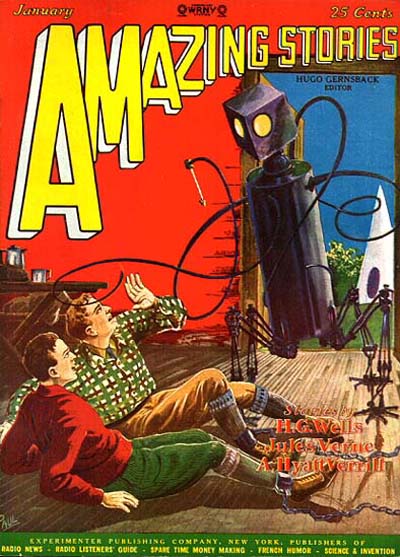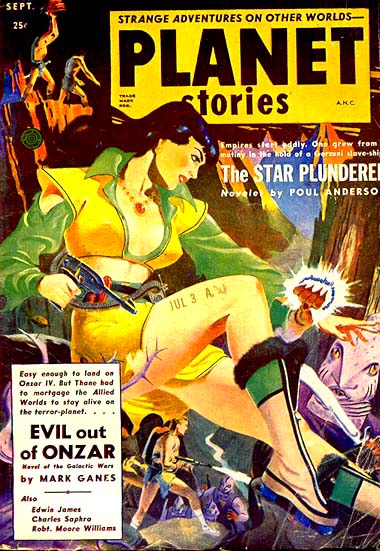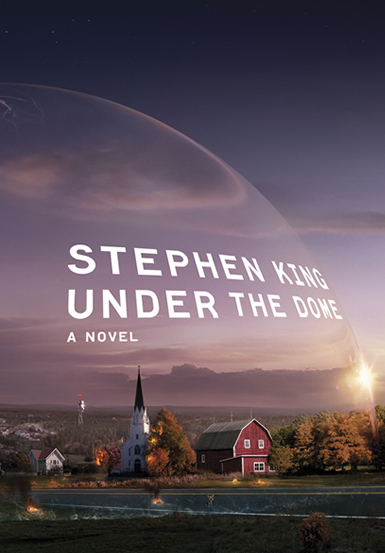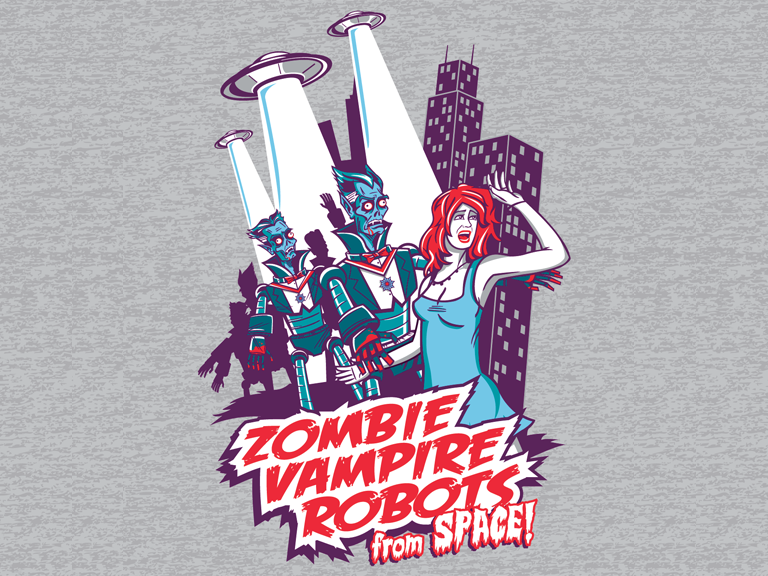 Hello, readers.
Hello, readers.I had some thoughts recently about things related to stories and genres. I thought I'd write them down. Whether or not they're worth reading, or believing in, of course, is entirely up to you.
The Secret History of Science Fiction, an anthology edited by John Kessel and James Patrick Kelly, appeared back in October. It showcases work from 1971 to the present from genre-ific writers (such as Gene Wolfe and Ursula K. LeGuin), slippery writers (such as Michael Chabon and Jonathan Lethem), and mainstream writers (such as Stephen Millhauser or T.C. Boyle).
The anthology's inspiration came from a thought-experiment proposed by Jonathan Lethem. In his 1998 essay for The Village Voice, "Close Encounters: The Squandered Promise of Science Fiction", Lethem pondered what would've happened if Thomas Pynchon's Gravity's Rainbow had won the Nebula Award in 1974, for which it was nominated, instead of Arthur C. Clarke's Rendezvous with Rama.
 Lethem thought that moment was "a hidden tombstone marking the death of the hope that science fiction was about to merge with the mainstream". It was the sort of essay bound to cause controversy, and also the sort of essay--full of an overzealously disappointed hope for acceptance by serious minded people--that seems to mark certain writers of speculative fiction (of which, I count myself, of course*).
Lethem thought that moment was "a hidden tombstone marking the death of the hope that science fiction was about to merge with the mainstream". It was the sort of essay bound to cause controversy, and also the sort of essay--full of an overzealously disappointed hope for acceptance by serious minded people--that seems to mark certain writers of speculative fiction (of which, I count myself, of course*).The titular secret of The Secret History of Science Fiction is that, in fact, the wall between science fiction and mainstream writing has secretly been crumbling over the past thirty odd years in much the way that walls often do when very determined (or very ignorant, possibly blind, people) keep punching people-sized holes in them.
It is a thesis backed up, they say, by the science fiction tropes appearing in mainstream literature and the mainstream, erm, I mean literary**, ambition of those writers who are less secretly associated with science fiction, like Gene Wolfe.
Paul Witcover, reviewing the anthology in Locus, though, respectfully disagrees. He found that, in contrast to this idea of a merger, that science fiction (or speculative fiction if that's your cup of terminology as it is Mr. Witcover's***) and mainstream writing have not merged. This is what he says:
 "I became convinced that Kelly & Kessel are wrong in a centrally important way, and that there really are substantial differences between genre speculative fiction of literary ambition and what is written outside the genre, even if it contains speculative elements. And I think these stories prove it: that is the secret history of The Secret History."
"I became convinced that Kelly & Kessel are wrong in a centrally important way, and that there really are substantial differences between genre speculative fiction of literary ambition and what is written outside the genre, even if it contains speculative elements. And I think these stories prove it: that is the secret history of The Secret History."The main difference, for Mr. Witcover is that science fiction writers, such as Karen Joy Fowler or J.G. Ballard, accept their worlds, their novum, their time travelling historians, as real, whereas for someone like Don Delillo, writing about men on a space station above earth, the tropes of science fiction are treated not so much as real, as they are treated as symbols or play-things.
Here's how Mr. Witcover puts it:
"Speculative fiction writers are apt to treat the subjects of their speculations as if they were real, no matter how outlandish and unlikely; thus, speculative fiction of the highest quality often has a unique reality**** to it. It employs the tools of mimetic fiction to ground and particularize its flights of fancy, whether they be technological or magical. It takes them literally. It concretizes metaphors."
And:
"...when mainstream writers venture into speculative fiction, it's all too often either a day at the playground, during which they feel free to cast aside the mimetic conventions they normally hold to in regard to plot, character, setting, etc., or a trip to the Olde Curiosity Shoppe, where they can pick and choose among exotic settings, objects, atmospheres, etc., to use as symbols and such in their own stories, which remain highly mimetic in a traditional sense."*****
Mr. Witcover, though, does not claim that all stories, in either mainstream or science fiction, follow these rules. People making generalizations generally claim things like this. It protects them from any exceptions you might bring up because they already told you there would be exceptions and so please be quiet already with your exceptions.
My thoughts in reading his review fell, more or less, with some few exceptions, of course, into two categories which I shall arbitrarily label This Is Seriously Quite Silly and This Is Seriously Quite Serious.
 Here's a sample of thoughts from This Is Seriously Quite Silly.
Here's a sample of thoughts from This Is Seriously Quite Silly.Who exactly wants science fiction to merge with the mainstream? Why do they want this? What is this mainstream anyway? What is science fiction? Why does Mr. Witcover begin calling it speculative fiction? Is there unspeculative fiction? If my name is Ian McEwan and I speculate about a terrorist attack and I believe in that terrorist attack and don't treat it as a symbol does that make me a speculative fiction writer?
If a reader, on other hand, doesn't believe Ray Bradbury really believed there was a day it rained forever, does this make the reader, the writer, or the story, a member of the mainstream?
Who determines, in fact, whether something a writer writes is satirical, symbolic, or wholly believed in by the writer at the time of writing?
 Are we to believe that no self-identified, or outsiderly associated, science fiction writers ever write their stories in the mode of satire? That they never have a message about the present which they aren't afraid to symbolicize in their stories?
Are we to believe that no self-identified, or outsiderly associated, science fiction writers ever write their stories in the mode of satire? That they never have a message about the present which they aren't afraid to symbolicize in their stories?Is, perhaps, Mr. Witcover--more than delineating a difference between mainstream and science fiction--delineating a difference between stories in general (those that believe in themselves and those that don't)?
Isn't this need to have science fiction, fantasy, etc., accepted by the mainstream, all just a left-over longing for acceptance by some authority/father/flying spaghetti monster which would presumably validate our lonely existence? Didn't we outgrow that yet?
What does it mean to have literary ambition? How do you know a story, science fiction or otherwise, has it? Is there a level of seriousness one must aspire to?
If a story doesn't believe in itself, how sad is this?
Who wants to spend their time thinking of questions like these?******
 In This Is Seriously Quite Serious, I had serious thoughts about the serious subjects of identity, self-imposed ghettoization, and the conflicting need to both define oneself in opposition to, and seek acceptance from, any outside entity. It was very much like the previous category except that I tried to answer the questions. It was much less fun, and so, I will not bore you with the details.
In This Is Seriously Quite Serious, I had serious thoughts about the serious subjects of identity, self-imposed ghettoization, and the conflicting need to both define oneself in opposition to, and seek acceptance from, any outside entity. It was very much like the previous category except that I tried to answer the questions. It was much less fun, and so, I will not bore you with the details.In conclusion:
1) Labels are dumb. They should not affect how you read. You should read Mary Shelley's Frankenstein and Jane Austen's Pride and Prejudice the same way--namely as if both stories are reports from a real place in which monsters exist and love confuses people. This shouldn't be all that hard since monsters do exist and love is quite confusing.
2) Labels are smart. They help us talk about things without resorting to excessively long hyphenated words or calling everything thing 1 and thing 2 and so forth. In discussing Hitchhiker's Guide to the Galaxy one could call it an absurdist and satirical science fictional romp in which many fantastic things happen. This would take too long, though, and be impossible to fit on a shelf label. Better to try out different, individual, labels on it and see what happens. For example, one could call it Science Fiction and be yelled at by fans of Asimov who believe that science fiction should not have talking mice unless they are robot mice who cannot kill you because of three rules that Asimov made up. One could also, of course, call Hitchhiker's a fantasy, but then you'd run into the trouble of fantasy people proclaiming that Brownian Motion sounds very scientific and everyone knows that talking mice were done first, and best, in Mrs. Frisby and the Rats of NIHM. But that's children's literature, though, and everyone knows that you can't take that seriously.
 3) Mainstream fiction is, more or less, a genre unto itself. Saying science fiction should one day be accepted as mainstream literature is very much like saying that one day, maybe, if we hope and work hard enough, romance literature will finally, and truly, be seen as the work of fantasy that it really is.
3) Mainstream fiction is, more or less, a genre unto itself. Saying science fiction should one day be accepted as mainstream literature is very much like saying that one day, maybe, if we hope and work hard enough, romance literature will finally, and truly, be seen as the work of fantasy that it really is.Besides, in a hundred years, science fiction will be regular fiction fiction anyway because everyone will carry infinite libraries in their pocket. Oh, wait...
4) It's much simpler not to care what other people think and go on about the business of creation.
5) The Secret History of Science Fiction is full of good stories. Go read them. Believe in them however you see fit.
6) My brain is tired now.
7) Here are other people talking about these things. Charles Tan on The Secret History. Candy Tan (writing of the joy of the romance ghetto). Michael Chabon
8) ttfn, readers.
9) Don't forget the footnotes.
*In the sense that I believe everything is real and true and imaginary and want to one day accept awards from places. It's a condition, I imagine, many people suffer from, whether they consider themselves speculative writers or not.
**This confusion of mainstream and literary confuses me as well, readers. One imagines, though, that most people would rather confess to an ambition for literariness than mainstreaminess.
***This terminological disease of shifting terminology is called Insecuritas Identificas. It's a disease most often experienced by indecisive scientists, minority populations, and hyper-intelligent shades of blue who feel they might be teal or maybe, in certain lights, aquamarine.
****Oh, dear. Now we've gone and brought reality into things. Heaven help us.
*****Presumably, this classifies Hitchhiker's Guide to the Galaxy as a piece of mainstream fiction because Douglas Adams appears to be having fun. At the very least, I guess, it gets classified as genre literature without literary ambition and that just sounds sad when you say it like that because it implies that literary ambition is more about realism, and, well, seriousness, than it is about ray guns or miscarriages. Absurdist literature has always been discriminated against, though. One day maybe it will be accepted as mainstream and then we can all be happy and very confused about how to be absurd.
******Me, apparently.











